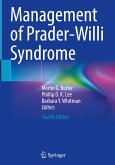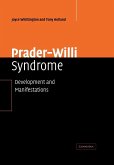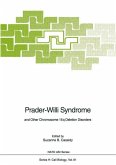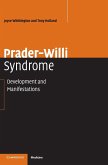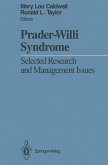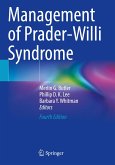Please note that the content of this book primarily consists of articles available from Wikipedia or other free sources online. Prader-Willi syndrome is a very rare genetic disorder in which seven genes (or some subset thereof) on chromosome 15 (q 11-13) are deleted or unexpressed (chromosome 15q partial deletion) on the paternal chromosome. It was first described in 1956 by Andrea Prader, Heinrich Willi, Alexis Labhart, Andrew Ziegler, and Guido Fanconi of Switzerland.[1] The incidence of PWS is between 1 in 10,000 and 1 in 25,000 live births. The paternal gene origin is lost due to deletion and the maternal genes are silenced due to imprinting. PWS has the sister syndrome Angelman syndrome that includes maternally deleted and paternally imprinted genes in the same genetic region.PWS affects approximately 1 in 10,000 to 1 in 15,000 newborns. There are more than 400,000 people who live with PWS around the world.
Bitte wählen Sie Ihr Anliegen aus.
Rechnungen
Retourenschein anfordern
Bestellstatus
Storno


